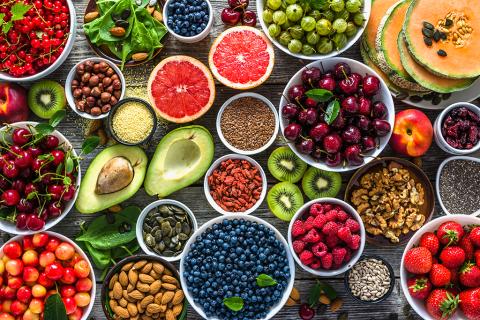
High uric acid levels in the blood, known as hyperuricemia, is usually associated with gout, a painful arthritis that affects 2.4% of Canadian adults, most commonly in the big toe. Even when it’s not causing symptoms, hyperuricemia may be linked to the development or worsening of other conditions, such as diabetes, chronic kidney disease, and cardiovascular disease.
Here are 5 simple dietary tips we recommend to help reduce uric acid levels, naturally:
- Reduce your intake of organ meats, red meats, and seafood. These foods are high in purines, which can lead to an accumulation of uric acid and cause gout symptoms. Animal protein has also been linked to increased risk of gout and hyperuricemia, and switching to plant-based proteins like lentils, beans, or tofu has been associated with decreased risk.
- Reduce alcohol intake. Alcohol and beer contain a moderate-to-high amount of purines and consuming these regularly has been shown to double the risk of hyperuricemia/gout.
- Reduce fructose in the diet. A study including over 125,000 participants found that people who consumed the most fructose had a 62% higher risk of developing gout. This is a type of sugar found in table sugar, high-fructose corn syrup, and is found in many processed foods and beverages.
- Avoid or minimize refined carbohydrates, such as white bread, white rice, cakes, and cookies. Although these foods aren’t high in purines or fructose, they are low in nutrients and may raise uric acid levels.
- Increase soy and soy products. Research shows that consuming soy products may help prevent gout attacks by reducing blood uric acid levels. Soy can classically be found in tofu, soy milk, edamame, tempeh, soy beans, soy nuts, and miso.
In summary, if you have gout, foods that should be avoided or minimized are organ and red meats, seafood, high-sugar foods and beverages, and refined carbohydrates. Foods that are considered gout-friendly include fruits, vegetables, legumes, nuts, whole grains, and eggs.
Author: Amira Diamond-Bier, CCNM Integrative Cancer Centre Intern